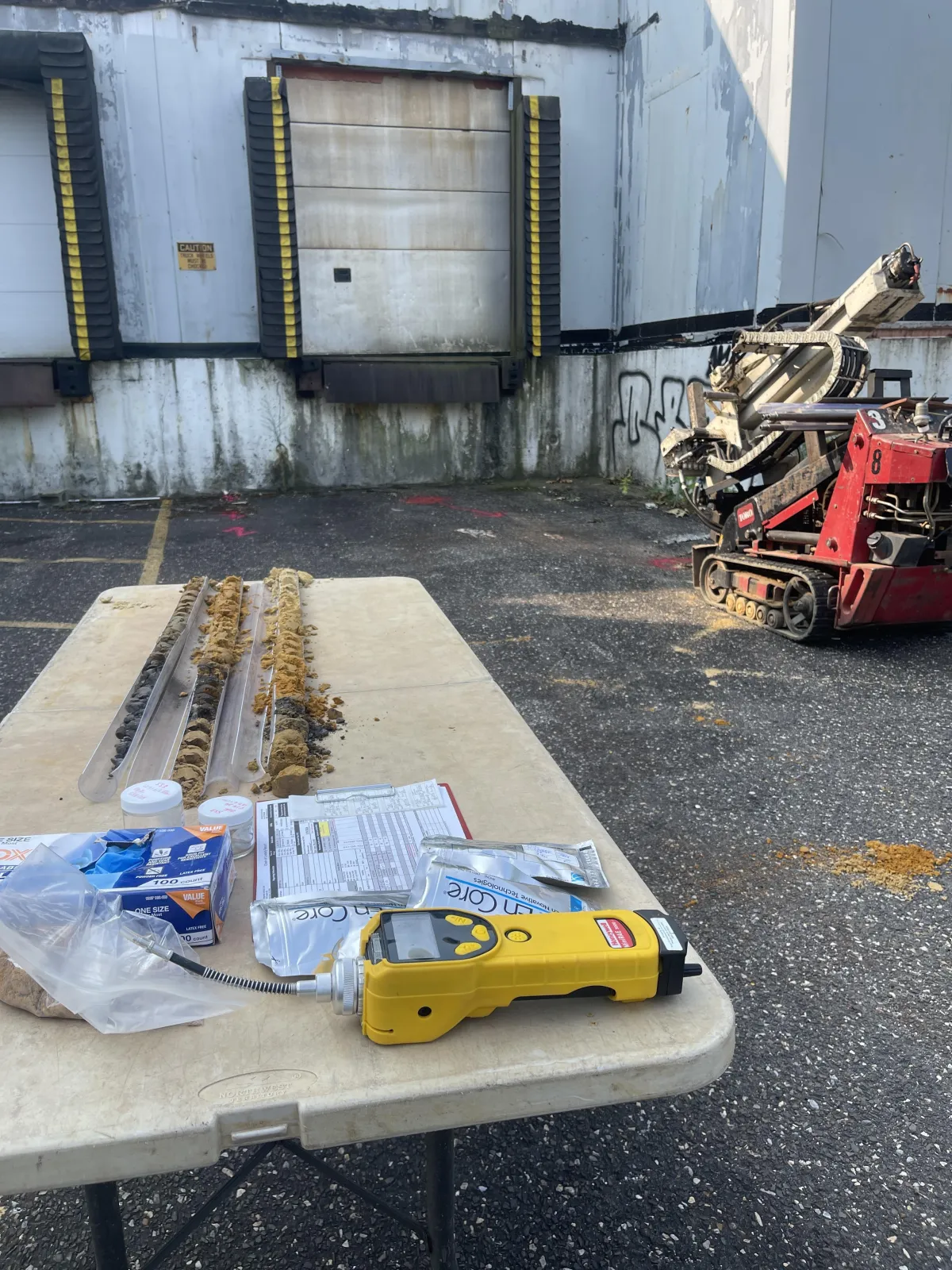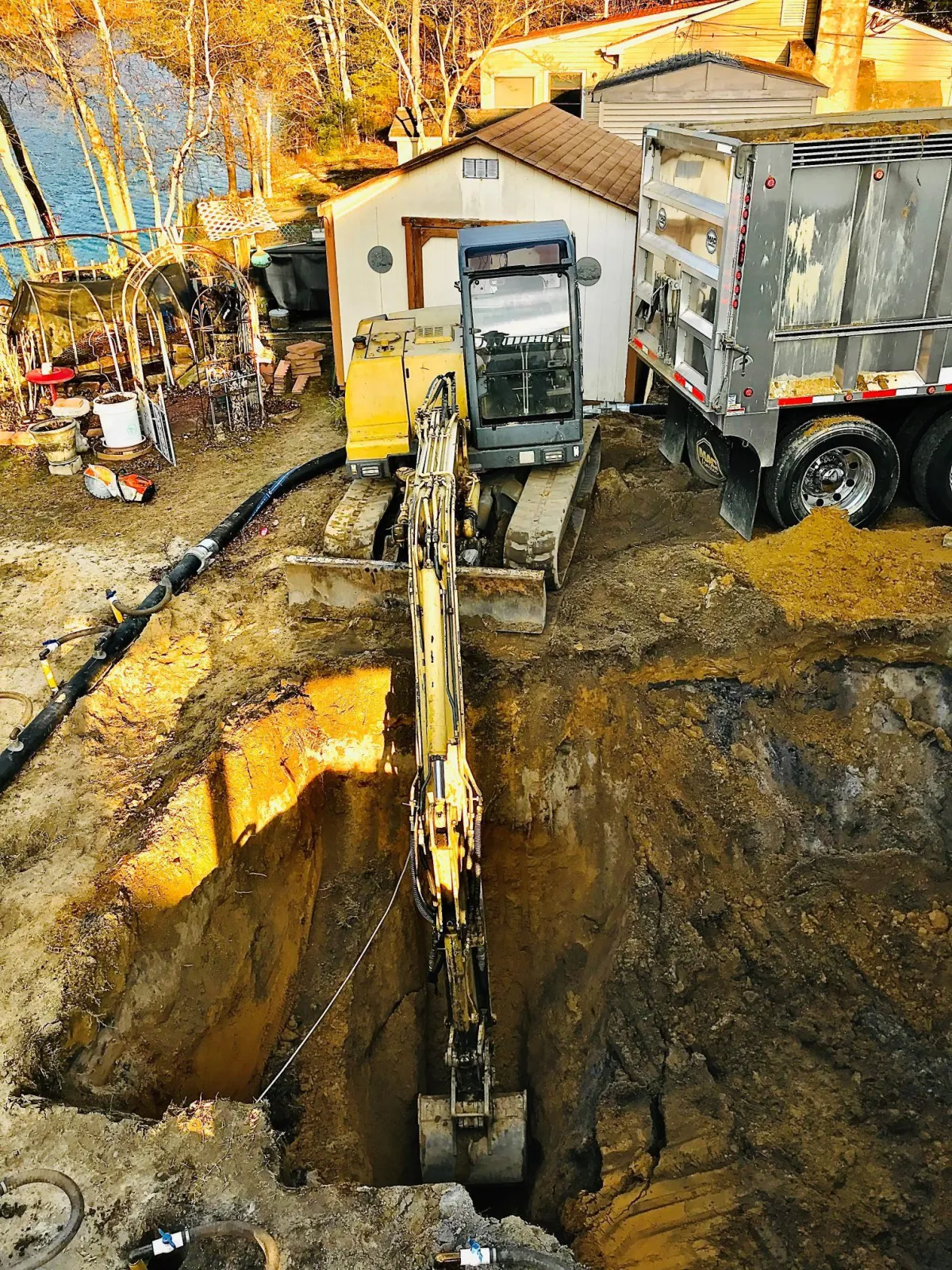
Understanding Soil, Groundwater, and Vapor Investigations
Environmental investigations are critical steps in protecting people, property, and investments. Whether you’re buying, selling, financing, or managing a property in New Jersey, understanding when these investigations are required—and what risks they uncover—helps you make informed decisions and avoid costly surprises.
At Oak Environmental, we guide clients through every stage of soil, groundwater, and vapor assessments, ensuring clarity, compliance, and timely results.
When Are
Environmental Investigations
Required?
Environmental investigations are often triggered by:

Real estate
transactions
Buyers, sellers, and lenders require due diligence (Phase I and Phase II ESAs) to confirm property conditions.

Regulatory requirements
New Jersey Department of Environmental Protection (NJDEP) mandates assessments when certain historical or current site uses suggest potential contamination.

Property
redevelopment
Brownfield redevelopment projects and zoning changes often require soil and groundwater testing.

Suspected contamination
Spills, leaking underground storage tanks (USTs), or known hazardous operations may necessitate immediate investigation.

Litigation and liability management
Attorneys and investors rely on defensible reports to protect clients from future legal or financial exposure.
What Risks Do These Investigations Uncover?
Environmental site assessments and subsurface investigations identify conditions that may threaten health, property value, or regulatory compliance
Soil Contamination
Heavy metals, petroleum hydrocarbons, pesticides, and solvents may linger from past industrial or agricultural use. Left unaddressed, these impact property usability and value.
Groundwater Contamination
Subsurface pollutants like fuel, solvents, or PFAS compounds can migrate off-site, creating long-term liability and potential health concerns.
Vapor Intrusion
Volatile organic compounds (VOCs) in soil or groundwater can enter buildings through cracks and utility lines, posing hidden risks to occupants.
Regulatory Non-Compliance
Properties with undisclosed contamination may face NJDEP enforcement, fines, and mandatory remediation, delaying transactions.

How Investigations Are Conducted
Oak Environmental’s licensed professionals tailor each investigation to the property’s history and risks. Typical steps include:
Soil Sampling & Analysis – Targeted borings and laboratory testing to identify contaminants.
Groundwater Assessment – Installation of monitoring wells to evaluate water quality and plume migration.
Vapor Intrusion Testing – Indoor air, sub-slab, and soil gas sampling to determine potential exposure risks.
Regulatory Coordination – Reporting results in compliance with NJDEP standards, ensuring defensible findings.
Remediation Options if Contamination is Found
When investigations confirm contamination, Oak Environmental provides clear, cost-effective remediation strategies:
Excavation and Disposal – Removal of contaminated soils from the property.
In-Situ Treatment – Injection of reagents to neutralize pollutants underground.
Groundwater Pump & Treat – Long-term extraction and purification of contaminated water.
Vapor Mitigation Systems – Sub-slab depressurization or sealing measures to prevent vapor intrusion.

Why Partner with Oak Environmental?

Trusted Expertise
Decades of NJDEP regulatory knowledge.

Local Experience
Serving commercial, residential, and redevelopment projects across New Jersey.

Fast, Clear Answers
We simplify technical data into actionable next steps.

Client Protection
Our defensible reports stand up to lender, buyer, and regulatory scrutiny.
Copyright 2025. Oak Environmental Consulting and Services. All Rights Reserved.